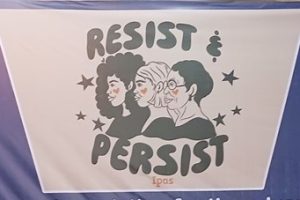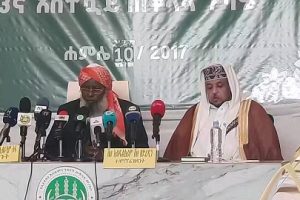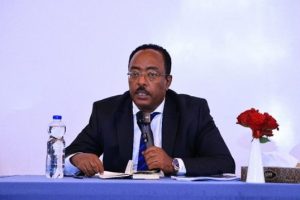
Having failed to catch up with modern practical aspects of teaching, schools of journalism in the country, according to experts, have made little headways in supplying media outlets with the highly sought skilled and ethical journalists.
This is part and parcel of the layers of challenges facing the media landscape, the experts argue.
Over the last couple of years, there has been impressive growth and program diversification and expansion of schools of journalism as the number of universities mushrooms. But paradoxically, Ethiopian media outlets have been criticized for being unprofessional and unethical.
The problem has gone from bad to worse as press freedom begun to gain little momentum and the country entered new transition. The matter received government and public attention who argue the media’s role has rather turned to be negative with some calling for legal measures and institutional reforms.
Also, the sources of the problem as experts argue are partly related with failures of academic and training centers to create well trained journalists.
Learning institutions are secluded from the actual practices of journalism. The schools are theory oriented. This puts constraints on the overall media practices of the country, School of Journalism and Communication Head at University of Gondar Mustefa Worku tells The Ethiopian Herald.
It does matter whether the curriculum is westernized or not, journalism is a universal practice and there is no peculiarity in its ethical and professional standards. But the fact that the government or the media outlets tried to practice developmental journalism in the wrong way that created confusions, he believes.
“Even what has been termed as ‘developmental journalism’ is not telling about success stories; it is also about showing loopholes or revealing misdeeds. But this has not been the case in the country. The media houses have been largely engaged in lavish praise of the government.”
He also argues no matter what kinds of denomination the media outlet has been sticking to, the issue of credibility or objectivity is no way to be compromised, he argues adding that this has partly to do with the way students or journalists are thought in the schools of journalism.
“There is no link between learning institutions and media outlets. Universities find it difficult to have their students admitted for internship programs in media houses.”
It is also true that scholars hardly participate in helping media practices vice versa. Experienced and seasoned journalists are not involving in journalism education. This delink could take journalism out the professional realm.
But above all, the way students are recruited and nominated to study journalism should be revised. It needs to consider passion and interest, he underscored.
Learning institutions should provide reporters with training, resources, coaching, and support regarding independent, informed students especially those aligned to the common core Standards of journalistic practice.
Abera Wendwesson is a journalist turned University lecturer. He teaches Journalism and Communication at Dilla University and Coordinator of Industry Linkage. He says that as a country we need to contextualize philosophy of journalism in Ethiopian context. Trying to cope and paste journalism in liberal democracies is doomed to be failed.
Since knowledge production system is largely dominated by western countries, the journals and other teaching materials are westernized. This at the end of the day will either misfit or unfit local contexts. Local context for example does not allow extreme freedom especially while media outlets lack the means to self-regulate themselves, according to Abera.
Every material is prepared in western values but the practice is a different kettles of fish. This hampers in the quest to produce skilled and ethical journalists familiar with local contexts. It is better that journalists train journalists. Learning institutions should pull practically trained lecturers if smoothened journalists are to be created, he underscores
He further notes schools of journalisms should expand their programs and catch up with modern information technology practices. New sources of information such as social media and other platforms are taking the upper hand over mainstream media; hence journalism schools should also open new program and train journalists who can fit new phenomena and trends.
It is to be recalled that during the Dialogue in Ethiopia which the Office of the Prime Minister organized, Head of PMO Press Secretary Nigussu Tilahun vowed government’s commitment to build the capacity of journalists by strengthening institutions and training centers.
The media landscape has been freed, getting media licenses has also become easier, he said indicating the issue of professionalism and ethics has remained to be the missing elements posing threats to national security and unity.
Herald May 3/2019
BY DESTA GEBREHIWOT





